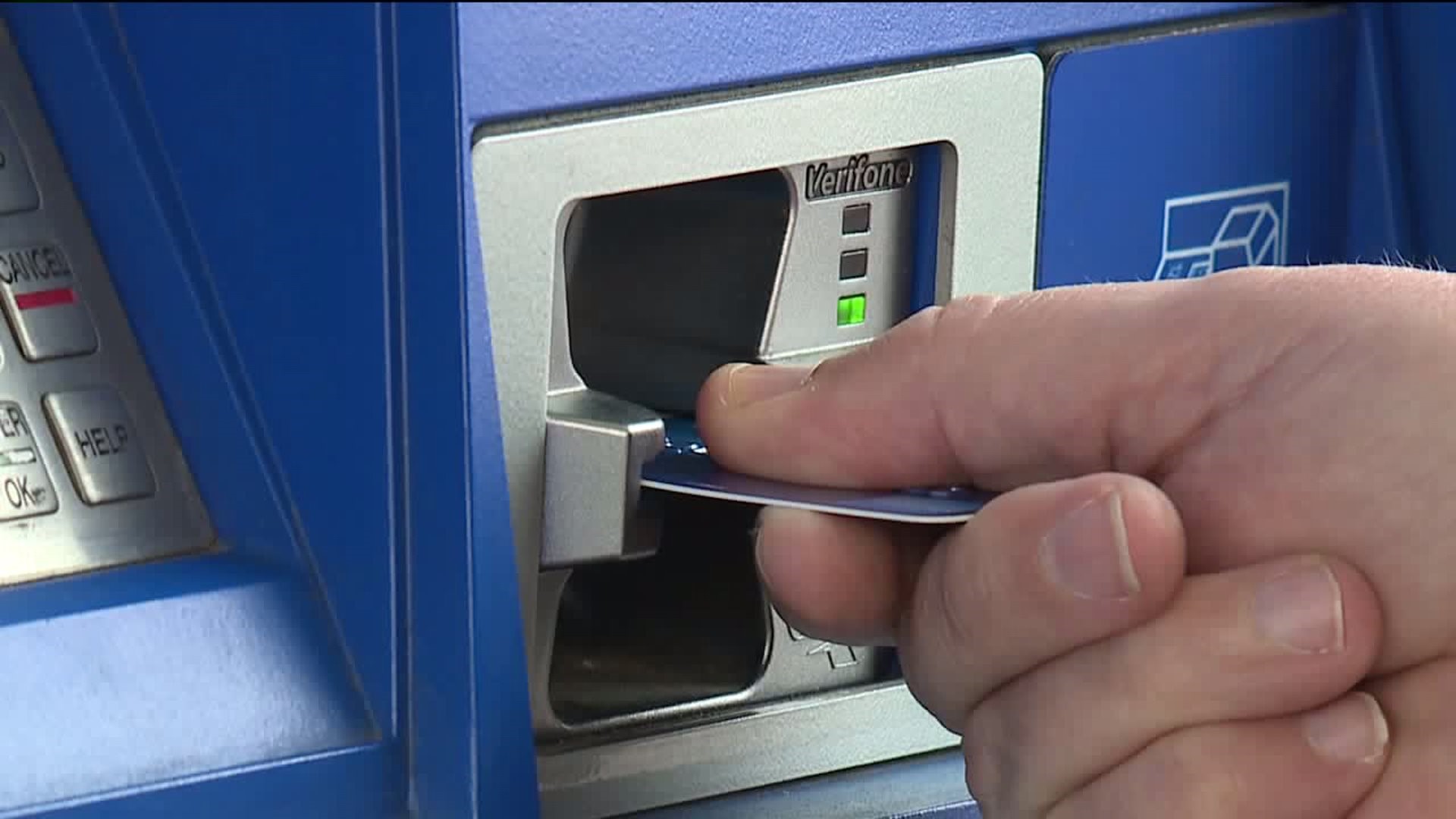A simple swipe of your credit card at a bank machine or a gas pump can result in thieves draining thousands from your account, all because the crooks are putting skimming devices in these machines.
The United States Secret Service says skimming is now a $1 billion a year crime in the U.S. and it's growing.
Skimming credit and debit cards is now the number one form of identity theft. It robs people of their money and can damage the reputations of small businesses.
We see their faces on surveillance video as they install or remove skimming devices on equipment like gas pumps or automatic teller machines, but police agencies admit few of these skimming thieves in northeastern and central Pennsylvania will ever get caught. Most of the time they have no ties to our area.
"The real problem we're seeing is the organized groups based out of eastern Europe," said U.S. Secret Service Agent Rich Reese.
Agent Reese says these skimmers are usually long gone from the area by the time a bank or gas station even knows they've been hit.
"The eastern Europeans are seeking asylum status in the United States. Once that is granted, it gives them free reign to move wherever they want to and conduct these criminal operations," Reese explained.
And these skimmers seem to be stepping up their crimes in our area.
Reese says after the thieves plant high-tech devices in bank machines and gas pumps, they get credit and debit card numbers from a magnetic strip, PINs from a pinhole camera, and they are able to make dozens of phony credit cards they hand out to criminal associates to use at bank ATMs to withdraw cash.
"You're talking, each number they get, a couple of thousand dollars a card, multiplied over hundreds of numbers and hundreds of cards. You're talking quite a bit of money they can get before it is shut down," said Reese.
In this story
Two years ago, state police told Paul Moyer that a crook put a skimming device in one pump at his family's gas station and garage near Schuylkill Haven. The thief got an unknown number of customers' credit card numbers.
"It's a very helpless feeling," Moyer said.
Moyer says customers started to lose confidence in this 60-year-old family business.
"Our name is on the sign. That's about the best way to put it."
So, he came up with a plan. Every hour, Paul or one of his workers checks the seals at gas pumps to make sure the credit card readers have not been tampered with.
After his plan was put in place, his clerks twice noticed broken seals at pumps where scammers inserted skimmers.
"It was less than an hour that they were in there. We were able to pull them out, give them to state police. No data was lost," Moyer said.
But even as business owners like Paul Moyer move to protect themselves and their customers, a new threat emerges.
Bad guys are now placing high-tech Bluetooth skimmers inside gas pumps. So, when customers put their cards in machines, the crook is sitting across the street, uploading the information from a wireless signal.
"It's now remote control fraud," Reese said.
So what should credit and debit card users do?
Agent Reese says check your balances or bank statements weekly.
Reese also says people should urge businesses to switch to card readers that use chip technology, not the magnetic strips.
"It's just a very antiquated and easy way to read and to skim, obtain information from credit cards."
And Reese sees more people pulling up to gas pumps but paying inside the station.
Agent Reese says skimming is a constant fight where the good guys try to catch up to a criminal's latest technology.
Now there is a new twist on the crime called shimming, where criminals sneak devices into ATMs that read the chip cards instead of the magnetic strips.
Right now, shimming is rare but this high-tech theft tool concerns banks, businesses, and law enforcement.

